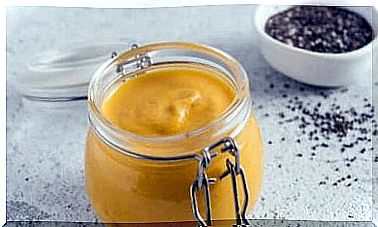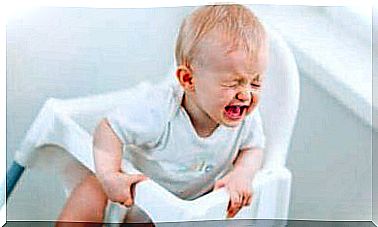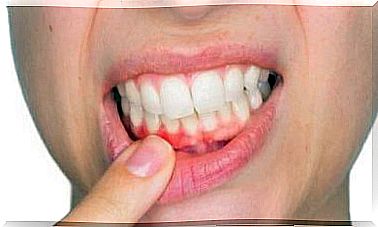Small Intestine Bacterial Overgrowth – Symptoms
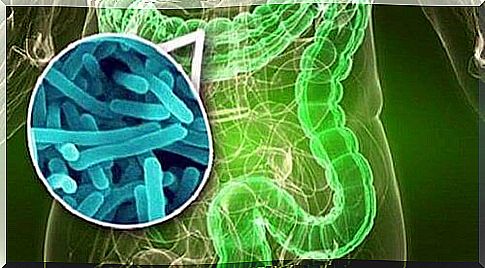
Do you sometimes suffer from gas and bloating after a meal? It is a very common problem affecting people with different lifestyles and shapes. Almost any swelling in the abdomen can be a sign of a bacterial overgrowth of the small intestine.
If it is accompanied by gas and gas, it may be an intolerance to certain foods or a bacterial infection causing an increase in intestinal temperature. This could be a condition called bacterial overgrowth of the small intestine or SIBO.
What is small intestine bacterial overgrowth?
Small intestine bacterial overgrowth occurs when normal bacterial balance is disturbed and bacteria start multiplying out of control. What does this show?
These types of food products stimulate the growth of bacteria. Additionally, they break down fatty acids, thus causing gas and gas.
Some types of bacteria can also break down bile before the body has time to use its properties. This results in poor digestibility of fats and such unpleasant ailments as diarrhea.
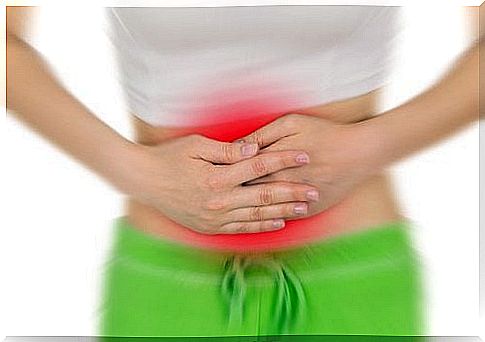
Instead, a third type of gut bacteria can produce harmful substances that damage the gut wall. As a result, they prevent the body from absorbing the nutrients it needs.
10 symptoms of bacterial overgrowth of the small intestine
Symptoms of bacterial overgrowth of the small intestine are quite common and can be easily confused with other conditions. However, if you suffer from one or more of them, it’s best to consult your doctor. Here is a list of the most common symptoms:
- Gases
- Flatulence
- Fat malabsorption
- Food intolerances (intolerance to lactose, gluten, caffeine, fructose and others)
- Abdominal pain and cramps
- Digestive problems, such as constipation
- Irritable bowel syndrome or inflammatory bowel disease
- Chronic fatigue, diabetes, autoimmune problems, neuromuscular disorders and fibromyalgia
- Vitamin and mineral deficiencies, especially vitamin B12
- Diarrhea
What are the causes of intestinal bacterial overgrowth?
Small intestine bacterial overgrowth is strongly associated with digestive processes that move bacteria along with food to the colon, from where they are to be excreted.
Disturbances or nerve or muscle dysfunctions in the gut can leave the bacteria inside the gut, leading to SIBO. Diseases such as diabetes, which affect the condition of the muscles of the intestine, are an additional risk factor.
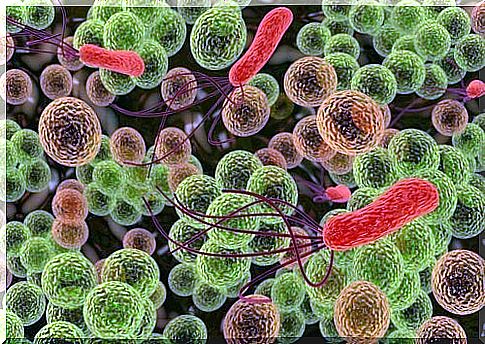
Other possible causes of bacterial overgrowth of the small intestine include physical blockages such as scarring from surgery or Crohn’s disease.
SIBO can also be caused by taking antibiotics, acid-blocking drugs and steroids.
As we have already mentioned, excessive consumption of products such as refined sugar and flour, alcohol, carbohydrates, etc. can also contribute to the development of the intestinal bacterial flora.
How to diagnose SIBO?
You can diagnose the bacterial overgrowth of the small intestine at home, following the advice of your doctor. This test usually involves fasting for 12 hours and ingesting a certain amount of sugar.
Then breathe out into the balloon every 15 minutes for 3 hours to prepare the breath sample. This method also makes it possible to diagnose celiac disease or pancreatic diseases.
At the hospital or arriving, the diagnosis of SIBO is made on the basis of urine and stool tests. First, however, consult your GP and carefully describe any disturbing symptoms.
How to Treat Small Intestine Bacterial Overgrowth Syndrome?
The first step in treating SIBO is to reduce your carbohydrate intake and avoid refined sugars and flour, and alcohol. Any pharmacological treatment should be prescribed by a doctor and most often it will be some type of antibiotic.

